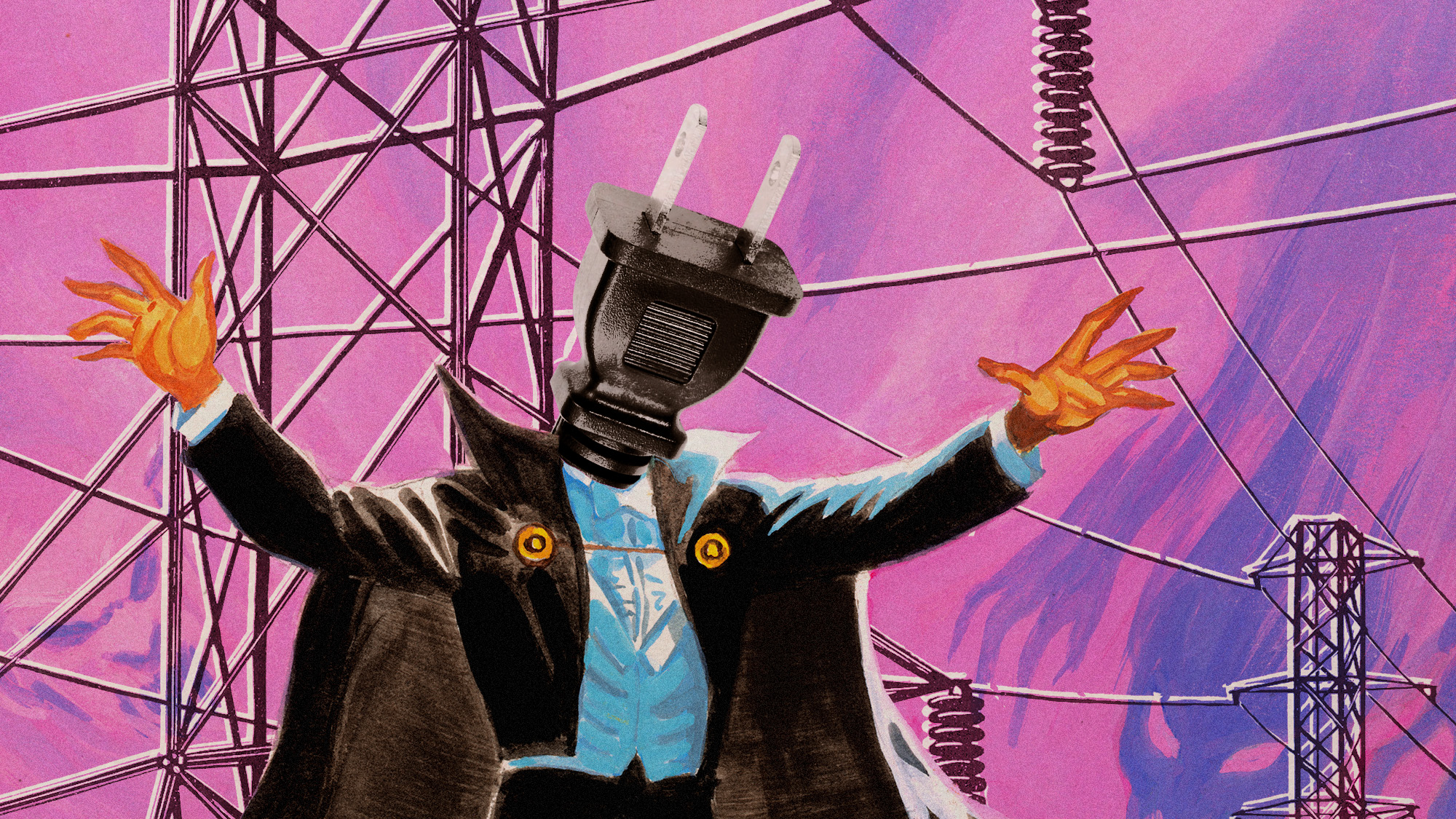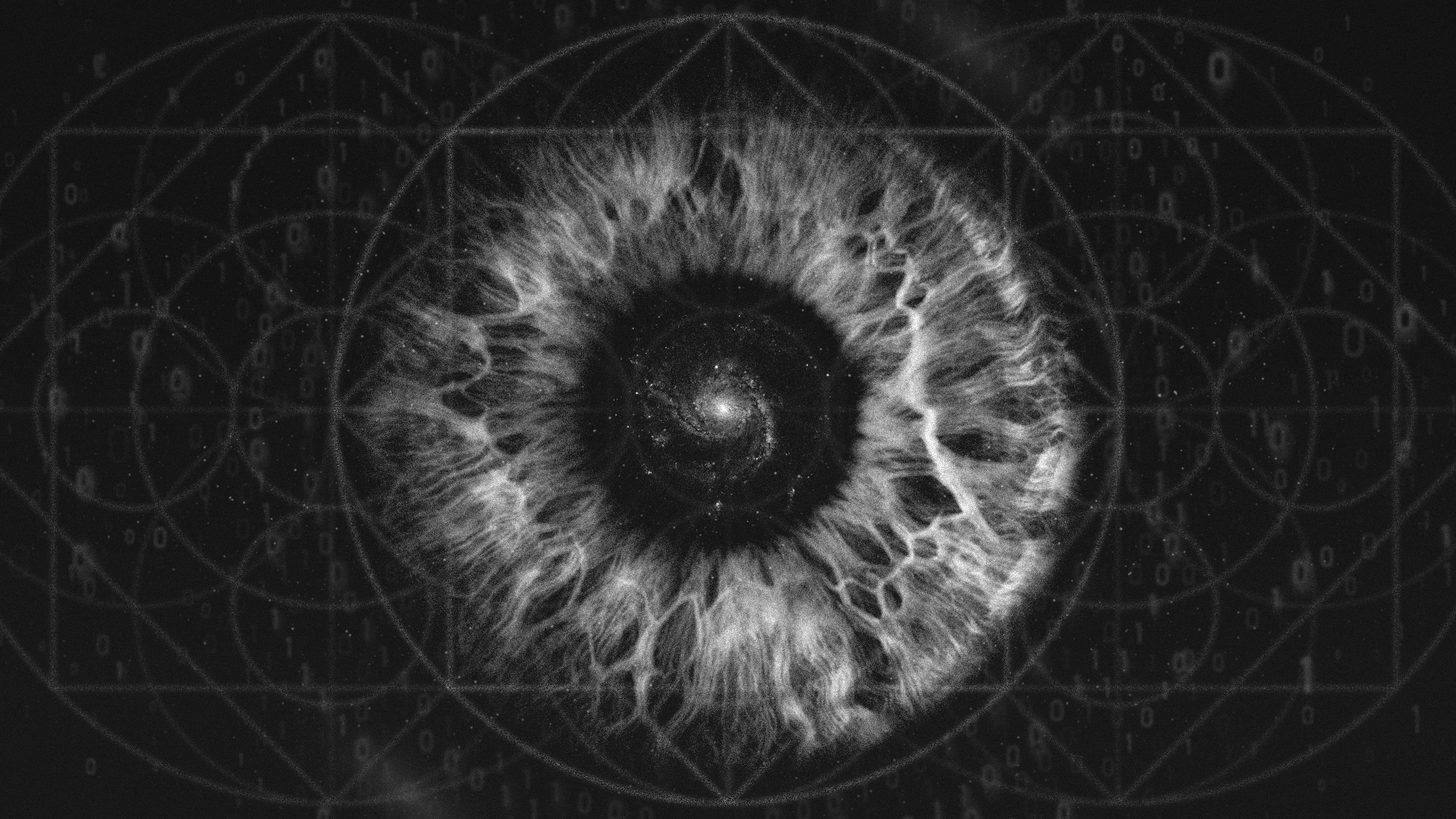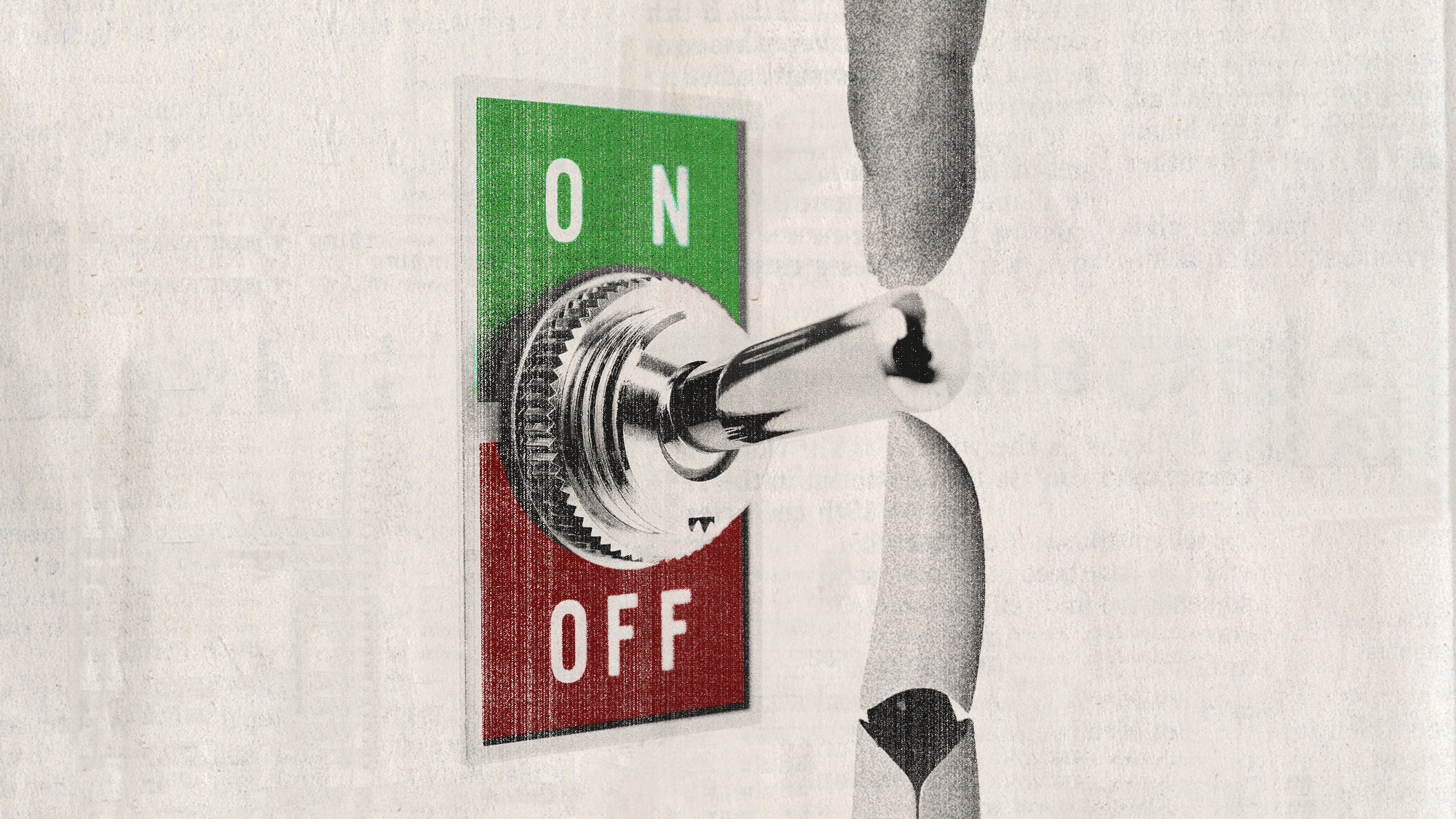'Vampire energy' could be causing your electric bill to rise
Wasted energy might account for up to 10% of home use


A free daily email with the biggest news stories of the day – and the best features from TheWeek.com
You are now subscribed
Your newsletter sign-up was successful
You might assume that when you turn your television or lamp off, it's no longer using electricity, but for a lot of devices, that's not the case. Many home appliances still consume small amounts of electricity when plugged in, even if they are turned off. This type of power consumption, known as vampire energy or phantom energy, can have a substantive impact on your electric bill.
How does 'vampire energy' work?
Entertainment devices, in particular, draw energy even when they are "not in use," said The Associated Press. Many televisions with internet connections and smart wake capabilities "interact with phones and other devices," allowing them to "consume up to 40 watts of energy during the hours of the day that the TV would normally be off," Matt Malinowski, the director of the buildings program at the American Council for an Energy-Efficient Economy, said to the AP.
Wasted electricity also stems from desktop computers that were "put into sleep mode instead of being powered off," chargers that still "draw power even if the device is not connected," and new smart home appliances like refrigerators, washers and dryers that have "always-on displays," said CNET.
The Week
Escape your echo chamber. Get the facts behind the news, plus analysis from multiple perspectives.

Sign up for The Week's Free Newsletters
From our morning news briefing to a weekly Good News Newsletter, get the best of The Week delivered directly to your inbox.
From our morning news briefing to a weekly Good News Newsletter, get the best of The Week delivered directly to your inbox.
This vampire energy "may not readily be noticed" by consumers, but it's a "big issue," according to the U.S. Department of Energy. It can account for "5% to 10% of residential energy use and could cost the average U.S. household as much as $100 per year."
How can you cut down on vampire energy?
Luckily for most consumers, modern appliances have gotten better at cutting down on vampire energy. Most "lights, electronics and appliances in your home are already pretty efficient and use much less energy than their predecessors from 10 or 20 years ago," said Wirecutter. Significant waste like "excess standby power, which devices draw while plugged in but not turned on, has largely been engineered and regulated out of new products."
But there are still several steps you can take to ward off the wasted energy and cut money off your electric bill. There's the obvious solution to "take a little step of unplugging the things that you are not using," Aidan Charron, the associate director of Global Earth Day, said to the AP. This will "save you money" and "emissions in the long run."
While televisions and similar devices may seem like the obvious choice, other things can be unplugged to save electricity. Examples include "old wireless phones, old media players, or lamps that are more decorative than functional," said CNET. Though this may seem like a tedious task, you can "set up ways to make the process of cutting phantom load more automatic," such as plugging devices into surge protectors.
A free daily email with the biggest news stories of the day – and the best features from TheWeek.com
Many have experimented with this type of behavior and had success. "I went around and unplugged everything in my house that's not in regular use, including electric heaters" and "several abandoned surge protectors and charge stations," Crystal Ponti said at Wired. "My electricity bill dropped by $38 the next month and $30 the month after, shaving about a third off what I typically paid."
Justin Klawans has worked as a staff writer at The Week since 2022. He began his career covering local news before joining Newsweek as a breaking news reporter, where he wrote about politics, national and global affairs, business, crime, sports, film, television and other news. Justin has also freelanced for outlets including Collider and United Press International.
-
 The Week contest: AI bellyaching
The Week contest: AI bellyachingPuzzles and Quizzes
-
 Political cartoons for February 18
Political cartoons for February 18Cartoons Wednesday’s political cartoons include the DOW, human replacement, and more
-
 The best music tours to book in 2026
The best music tours to book in 2026The Week Recommends Must-see live shows to catch this year from Lily Allen to Florence + The Machine
-
 Most data centers are being built in the wrong climate
Most data centers are being built in the wrong climateThe explainer Data centers require substantial water and energy. But certain locations are more strained than others, mainly due to rising temperatures.
-
 Data centers could soon be orbiting in space
Data centers could soon be orbiting in spaceUnder the radar The AI revolution is going cosmic
-
 AI griefbots create a computerized afterlife
AI griefbots create a computerized afterlifeUnder the Radar Some say the machines help people mourn; others are skeptical
-
 Inside a Black community’s fight against Elon Musk’s supercomputer
Inside a Black community’s fight against Elon Musk’s supercomputerUnder the radar Pollution from Colossal looms over a small Southern town, potentially exacerbating health concerns
-
 Spiralism is the new cult AI users are falling into
Spiralism is the new cult AI users are falling intoUnder the radar Technology is taking a turn
-
 Microsoft pursues digital intelligence ‘aligned to human values’ in shift from OpenAI
Microsoft pursues digital intelligence ‘aligned to human values’ in shift from OpenAIUNDER THE RADAR The iconic tech giant is jumping into the AI game with a bold new initiative designed to place people first in the search for digital intelligence
-
 AI models may be developing a ‘survival drive’
AI models may be developing a ‘survival drive’Under the radar Chatbots are refusing to shut down
-
 Saudi Arabia could become an AI focal point
Saudi Arabia could become an AI focal pointUnder the Radar A state-backed AI project hopes to rival China and the United States
